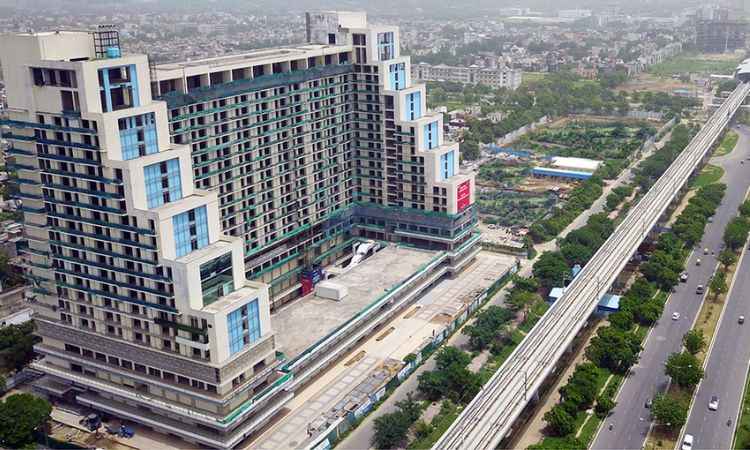Investing in Commercial Property is different from residential options. It can provide higher returns and a steady income. We’ve created a clear guide that shows a planned method for successful commercial property investment. This process starts with investors setting their own goals and plans. It’s important that their plans match the various opportunities out there and their means. The next steps include a detailed market and property studies. This enables investors to decide wisely based on changes, pricing, and possible returns.
If investors follow this detailed plan, they can leverage the distinct gains of commercial real estate. This includes different types of investments and long-term financial growth. This method acts like a map, helping investors navigate through the twists and turns of the Commercial Real Estate market. Ultimately, they are set up for success in a constantly changing and rewarding investment field.
Table of Contents:
- What is Commercial Real Estate and Why Invest?
- Steps to Invest in Commercial Real Estate
- Tips on Choosing the Right Commercial Real Estate:
- Conclusion
What is Commercial Real Estate and Why Invest?
Commercial real estate includes various properties used for economic purposes only. Think about offices, apartments, factories, shops, hotels, or multi-use venues. This sector tempts investors with its promise of big payouts.
It’s a pathway to serious money-making. Plus, these properties can provide stable income, adding to their appeal. In short, commercial real estate offers a tempting investment opportunity. It’s great for those after financial growth and a way to offset risks.

In simpler terms, Commercial Real Estate covers spaces like offices, apartments, factories, and more. It’s seen as an attractive area for investments. Commercial real estate brings serious benefits. It offers ways to make money and grow financially.
Stable income from these properties makes them a good choice for investors who want profit and less risk. If you want to invest in commercial real estate or need advice from the best real estate company in India. This field is worth considering. It’s a strategic way to increase finances and diversify.
Steps to Invest in Commercial Real Estate:
1. Define Your Investment Goal and Strategy
Deciding on an investment goal and plan is a key first step in this field. This could involve opting for quick profits from property flipping. Or maybe choosing a buy-and-hold strategy for long-term assurance.
2. Research Potential Markets and Properties
Digging deep into market trends, price shifts, and rental rates is key while exploring potential markets and properties.
To spot good deals, you need a solid grasp of the local economy. By observing these details, investors learn things that help them make the right choices, leading to rewarding commercial real estate ventures.
3. Find the Right Financing
Pick the correct financing for your commercial real estate investment. Look into different choices, like commercial loans, collaborations, and crowdfunding.
You should match your eligibility, looking at aspects like credit status and investment goals. Choosing the fitting financing option lays the groundwork for buying and controlling commercial properties effectively.
4. Make an Offer and Negotiate Terms
When placing a bid in Commercial Real Estate, creating an attractive proposal is crucial. Use smart bargaining tactics to get good terms. Think about the buying price, possible issues, and when the deal closes.
A good offer shows you’re serious and helps you buy the commercial property you want. Being good at negotiating can help make your investment a lot more profitable.
5. Conduct Due Diligence
It’s really important to do your homework when investing in Commercial Property. Check out the property completely, look over all the financial information and study the terms of the lease.
Doing all this helps you to fully understand the possible gains and losses of your investment. Knowing this, investors can make wise choices avoiding unexpected issues before completing the deal.
6. Close the Property
Commercial real estate transactions have important stages. There’s the signing of the buying agreement, getting the funds, and transferring ownership. You need sharp eyes on every detail.
Legal and financial rules need strict follow-up. At the end point of your investment, accuracy matters. This is when you finalise the deal and officially say the commercial property is yours.
7. Manage the Investment
Smart leadership helps increase the profit of commercial property. It means taking care of tenants, handling repair issues, and running different property tasks.
Satisfied tenants, quick fixes, and active management bring success. A well-managed, profitable property brings a stable income. This benefits your whole real estate value.
Also Read: The Process of Buying Commercial Real Estate
Tips on Choosing the Right Commercial Real Estate:
For future benefits, it is essential to choose the right commercial real estate for you. If you are confused about choosing the right commercial real estate, first you have to follow the guide shared by an experienced one. It is also important to understand the benefits of investing in it.
Here in the above paragraph, we already discussed the benefits of investing in it by which you can understand things well. If you want to invest in commercial real estate, we are going to share tips on choosing the right commercial real estate through the given points.
1. Office Spaces
When it comes to commercial real estate, it’s not just about location. You also need a clear strategy. This guide provides essential tips for finding the right office spaces, industrial facilities, or multipurpose buildings. Leveraging these insights, investors can confidently track market patterns and make informed investment choices.
Choosing commercial real estate isn’t just about location. It’s about smart tactics. This how-to guide provides essential tips for your journey. It’s useful whether you’re hunting for office spaces, industrial plants, or multi-purpose buildings.
To ride the waves of market trends and meet your investment goals, this knowledge is key. With these tips, investors can freely make decisions, boosting their chances of profitable and lasting real estate investment.
2. Multifamily Commercial Spaces:
When you’re scouting for office spaces, focus on demand, position, and business district growth. Research present and future needs for offices in your chosen area. Make sure it matches current trends.
A good spot in a booming business district can increase the allure and growth potential of your property. As a result, it became a prized jewel in a competitive commercial real estate world.
In the end, hunting for commercial multipurpose spaces requires paying close attention to demand, location, and the growth potential of the surrounding business sector. Syncing with current and anticipated office needs, particularly in a vibrant business district, can transform your property into a highly sought-after piece in the challenging commercial real estate market.
3. Industrial Spaces
To sum up, the success of warehouses and factories heavily relies on transportation links and nearby industrial facilities. Knowledge of local industries helps gauges demand. Positioning your factory near efficient transport and industry centres boosts its likelihood of success.
If you understand the benefits of investing in commercial real estate well and want to invest in it, think about warehouses and factories. Being near transport routes and other factories is important.
It makes moving goods easier and improves how the business works. Knowing about other local industries can help you work out if there’s demand for your factory. If your factory is near transport and industry, it could be more successful.
4. Retail
Buying retail property needs a lot of thought. Look at how many people walk past, and get to know your possible customers. Understand who they are. Examine your competitors in the area. This will help you work out how saturated the market is and what makes your property special.
By considering all these things, investors can make better choices. It can also improve chances of success in buying and selling commercial buildings.
5. Hospitality Spaces
When it comes to hotels and the like, planning is everything. Look at tourism hubs and make sure there’s a demand before jumping in. Think about what makes the place attractive to visitors and its effect on the overall hotel business.
Knowing this can help make the investment in hotels a success, allowing buyers a leg up in the ever-changing and competitive world of business property.
6. Multi-purpose Spaces
For properties used for various purposes, flexibility is important. Buyers need to look at whether the property can serve several different uses, keeping it versatile.
Being quick to adjust to what the market wants, and changes in business needs can ensure that the investment lasts a long time. Going for these flexible properties helps buyers withstand the changing world of business property with a strong and far-seeing strategy.
Also, if you would like to learn how to choose the right location for your commercial property, please take a look at this blog.
Conclusion
You want success in the Commercial Real Estate business. Strategy, research, financing, and management are key. This guide emphasises clear goals, detailed research of market and property, smart financing, and top-notch negotiation skills. Due diligence, smooth closing of property deals, and effective ongoing management are also important steps.
Commercial real estate promises high returns, steady income, and diverse investment options. Offices, industrial spots, or hospitality venues – make your pick based on market trends and your own goals. To make the most of your real estate journey, you need to join forces with the best real estate company in India. They’ll offer specialised knowledge and guides in the ever-changing commercial property scene.


